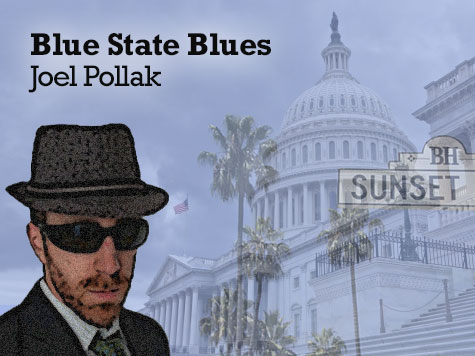In the summer of 2008, while the U.S. presidential election was in full swing, I took a break from the political fray to visit Prague, where my girlfriend (now wife) Julia was studying Czech. I intended to stay for a week but ended up staying for a month, charmed by the city and by the delightful folks at the Hotel Silenzio, situated on a quiet hill just above the austere college where Julia was living with her Harvard classmates for the summer.
It was the 40th anniversary of the Prague Spring, that tragic, romantic moment when the people of communist Czechoslovakia mustered the courage to experiment with freedom in the Soviet shadow–even to challenge the domination of the USSR over every facet of life, public and private. The Prague Spring was crushed with the arrival of Soviet tanks in August. It would be another 21 years before the Berlin Wall fell, and freedom returned.
Every “spring” since has been a poor imitation. Not much is left of the Arab Spring of 2011–a unique and wasted moment in the Arab Middle East, when liberal reformers were swiftly overtaken by Islamist radicals and, later, military regimes. An even greater failure was the fall of the Green Revolution in 2009, which President Barack Obama ignored, quietly preferring to let the regime regroup in the hope of preserving his diplomatic ambitions.
Yet the Middle East has also been done in by underlying social and cultural problems. Not so Eastern Europe, much of which has embraced freedom and enjoyed new prosperity. The Czech people in particular have clung to liberty, having been denied it for so long–first under Nazi occupation, then under Soviet rule. Beyond the sheer beauty of Prague, which has endured through history, that love of freedom is what gives the city its magnetism.
It was fascinating to watch then-Sen. Obama’s trip to Europe from that perspective. He wanted to speak at the Brandenburg Gate in Berlin, where President Ronald Reagan had famously declared: “Mr. Gorbachev, tear down this wall!” Obama had to settle for the Victory Column instead, telling hundreds of thousands of Germans, and the rest of the world, that he would defend “the dream of freedom” for which so many had sacrificed.
Sen. Obama recalled the Berlin airlift, when “retreat would have allowed Communism to march across Europe,” but “the largest and most unlikely rescue in history brought food and hope to the people of this city.” NATO was formed shortly thereafter, he recalled–“the greatest alliance ever formed to defend our common security.” He said the U.S. “has not perfected itself,” but promised a new American commitment to Europe and the world.
Prague seemed skeptical–unsure what to make of teeming German crowds chanting the name of a new cult-like figure, uncertain whether the “share of mistakes” Obama regretted meant he had little use for the commitment that Czech troops had made to American-led missions in Iraq and elsewhere.
Julia and I had already made up our minds about Obama. But in April 2009, the Czech people would have the chance to hear for themselves.
President Obama, speaking in Hradcany Square, reminded his audience of how the freedom of Prague had been won.
“We’re here today because of the courage of those who stood up and took risks to say that freedom is a right for all people, no matter what side of a wall they live on, and no matter what they look like,” Obama said. “We are here today because of the Prague Spring–because the simple and principled pursuit of liberty and opportunity shamed those who relied on the power of tanks and arms to put down the will of a people.”
He pledged to strengthen the NATO alliance, and–crucially–to “have contingency plans in place to deal with new threats, wherever they may come from,” adding that “we must pursue constructive relations with Russia,” while pledging to “go forward with a missile defense system that is cost-effective and proven.”
Everyone understood him to mean the system negotiated by President George W. Bush with the Czechs and with Poland.
Just five months later, on Sep. 17, 2009–ironically, the 70th anniversary of Russia’s invasion of Poland–Obama broke that agreement, announcing that the U.S. would no longer pursue a long-range missile defense system in Europe, opting for a scaled-down substitute. It was the first of Obama’s many futile concessions to Russia.
Five years after Obama’s lofty promises to the people of Prague, an aggressive, irredentist Russia is devouring our Ukrainian ally. The Obama administration has denied Ukraine weapons, and sent rations instead–not by air, as in Berlin 65 years ago, but by truck, lest the Russians take offense.
The president who told Prague, “There is violence and injustice in our world that must be confronted,” now begs Russia for a diplomatic “solution.” It is a solution that confirms Russian annexation of the Crimea–and worse.
The people of Prague have seen it before: in the appeasement by Britain in 1938, in the hand-wringing of the U.S. in 1968. Yet Neville Chamberlain and Lyndon Johnson had not stood in Prague and promised to defend the freedom and independence of “small countries.”
President Obama has betrayed Prague–and so have we, if we let his cowardice stand unchallenged.

COMMENTS
Please let us know if you're having issues with commenting.